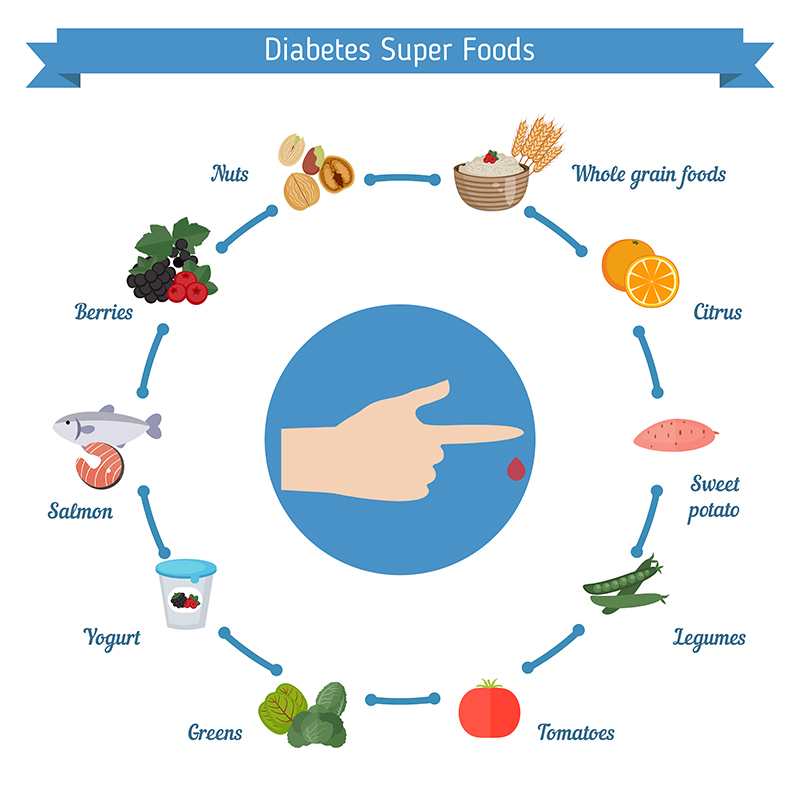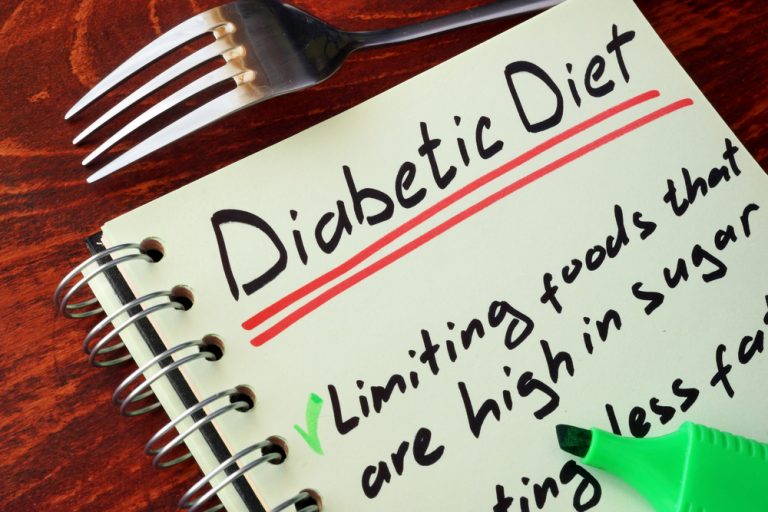How to include products which lower the blood sugar level in your daily diet? We will show it today! This way you will regulate your glucose level and avoid diabetes.
Why we need a good blood sugar level?
The proper functioning of the body depends, among others from the proper level of glucose (sugar) in the blood. Measured on an empty stomach should be less than 100 mg/dL (5.6 mmol), and two hours after glucose intake - less than 140 mg/dL (7.8 mmol).
Your blood sugar depends on what you eat. Most of the carbohydrates contained in bread, pasta, potatoes, sweets and fruit are digested in the digestive tract and they turn into glucose. It is absorbed into the blood and then penetrates into the muscles, liver and other organs, supplying them with energy.
For glucose to enter your body cells, you need insulin - a hormone made by the pancreas. When it is lacking, the cells do not receive the necessary energy, and the excessive sugar amounts remain in the blood. This condition is known as hyperglycemia. It often happens in the elderly and also obese people. To lower sugar levels, a diet enriched with good (slow-absorbed) carbohydrates is recommended.
Vegetables effectively reduce blood sugar levels
An important place in the diet should be occupied by vegetables, preferably raw ones. Cooked vegetables increase blood sugar levels faster. It is recommended that you eat at least half a kilogram of them every day. Add them to every meal and drink vegetable juices. Vegetables are a source of dietary fibre, which prolongs the digestion of sugars, then the level of glucose in the blood rises slowly, and this prevents hyperglycemia.

Vegetables that can be eaten without restrictions:
- chicory
- zucchini
- fresh cucumbers
- pickled cucumbers
- radishes
- cabbage
- sauerkraut
- all kinds of lettuce
- chives
- spinach
- asparagus
- fresh mushrooms
- swiss chard
- onion
- cauliflower
- green pepper
- tomatoes
- celery
- sorrel
- broccoli
You can eat them without restrictions also between the main meals because they have less than 6 g of sugars in 100 g.
Vegetables that can be eaten 1-2 times a day:
Slightly more carbohydrates (up to 10 g in 100 g) contain
- brussels sprouts
- beetroot
- onion
- pumpkins
- red peppers
- turnips
- cabbage
- carrots
- celery
- parsley root
Vegetables not recommended for its high sugar content:
- legumes
- corn
- potatoes - however, this applies only to freshly boiled potatoes
People with elevated sugar levels should eat cereal
Cereal products should be the basis in the diet for people at risk of diabetes. They are a rich source of B vitamins, especially B1, B2 and B6, which affect the metabolism of carbohydrates, e.g. facilitate the conversion of glucose into energy. Cereal products also contain starch and a lot of fibre.
Carbohydrates in the daily menu should come from the wholemeal and whole-grain bread with bran, graham, brown rice and cereals (oatmeal, barley).
Carbohydrates allowed, but a limited amount can come from mixed and white bread, pasta, white rice and groats. They provide so-called slow sugars, which are slowly digested and absorbed. Remember though, that you can not eat them without restrictions, because in excess they increase blood glucose levels.
Spices that lower the sugar level
Clove, fenugreek, and cinnamon also lower sugar levels. Synigrin also has such properties - a substance that is rich in watercress.
Resistant starch lowers blood sugar
It’s time to like resistant starch. It is a starch that we cannot digest or absorb. It undergoes fermentation in the colon just like it does with fibre. Resistant starch has another advantage - it works like fibre, lowering blood glucose levels.
This form of starch contains stale bread, cereals, pasta, beans, bananas with green skin and ... potatoes boiled the previous day (you can make salads from them!). This is good news for those who love those vegetables because freshly boiled potatoes are forbidden for people with elevated sugar levels. Although you can only occasionally afford 2-3 baked or steamed potatoes.






